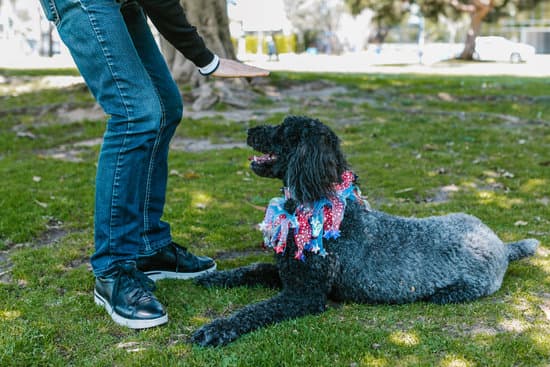Are you tired of coming home to a yard full of holes courtesy of your furry friend? If you’re wondering how to train dogs to not dig holes, you’re in the right place. Digging is a natural behavior for dogs, but it can be frustrating and even destructive for pet owners. In this article, we’ll explore the root of the behavior and provide valuable tips and techniques for training your dog to kick the digging habit.
First, it’s essential to understand why dogs dig in the first place. Whether it’s out of boredom, seeking comfort, or simply a way to cool off on a hot day, there are various reasons behind this common behavior. By getting to the bottom of why your dog is digging, you can then take appropriate steps to address and correct the behavior effectively.
Once we’ve delved into the motivations behind digging, we’ll discuss the negative effects of this behavior and why it’s crucial to tackle it head-on. Digging can result in damage to your yard or garden and even pose safety hazards for your pet if they unearth something dangerous. Addressing digging early on can save you time, effort, and frustration down the line.
From positive reinforcement training using treats and rewards to creating a designated digging zone in your yard, there are numerous strategies that can help curb this behavior. Our article will cover everything from exercise and mental stimulation to environmental modification techniques that deter digging in unwanted areas.
It’s all about establishing a consistent routine that reinforces positive behaviors while redirecting your dog’s natural instincts. So let’s get started on training your dog to enjoy their playtime without leaving behind a trail of unsightly craters.
The Negative Effects of Digging
Dogs are natural diggers, and while this behavior may seem harmless, it can actually have negative effects on both the dog and the owner. It’s important to address the behavior of digging because of the following reasons:
- Damage to landscaping and property: Digging can wreak havoc on your lawn, garden, and backyard. This can result in costly repairs and a less-than-appealing outdoor space.
- Escape attempts: Dogs that dig may be trying to escape from their enclosed area, which can lead to them getting lost or injured if they succeed in escaping.
- Injury or illness: Digging in unfamiliar areas can expose dogs to sharp objects or toxic substances buried in the ground. This puts them at risk for injury or illness.
To prevent these negative effects, dog owners should take proactive steps to discourage their pets from digging. Utilizing positive reinforcement training techniques, creating a designated digging zone, and providing ample exercise and mental stimulation are some methods that can help address this behavior.
It’s essential for dog owners to understand the consequences of digging and take action to train their pets accordingly. By addressing this behavior early on, both the dog and its owner can enjoy a happier and safer environment.
Positive Reinforcement Training
The use of positive reinforcement training can be an effective method for teaching dogs to not dig holes in the yard. By using treats and rewards, pet owners can encourage good behavior and discourage the unwanted behavior of digging. Dogs are naturally inclined to seek out rewards, so this method can be particularly successful.
When implementing positive reinforcement training, it is important to catch the dog in the act of displaying good behavior. For example, if the dog begins to dig a hole and then stops when commanded to do so, immediately give a treat or reward as a form of positive reinforcement. This helps the dog make positive associations with not digging.
It is also important to be consistent with rewards and treats whenever the dog displays good behavior such as refraining from digging. Over time, the dog will begin to understand that good behavior leads to positive outcomes, making them more likely to repeat those behaviors in the future.
| Positive Reinforcement Training Method | Effectiveness |
|---|---|
| Catch dog in act of good behavior and immediately reward | Helps make positive associations with not digging |
| Consistently reward good behavior | Reinforces understanding that good behavior leads to positive outcomes |
Exercise and Mental Stimulation
Dogs are natural diggers, and the behavior can often be a result of boredom or excess energy. Therefore, providing adequate exercise and mental stimulation is crucial in preventing this behavior. Here are some tips for keeping your dog busy and distracted from digging:
- Regular Exercise: Make sure your dog is getting enough physical activity on a daily basis. A tired dog is less likely to engage in destructive behaviors like digging.
- Mental Stimulation: In addition to physical exercise, mental stimulation is important for keeping your dog occupied. Offer interactive toys, food puzzles, or training sessions to keep their mind engaged.
- Playtime: Spend quality playtime with your dog to build a strong bond and provide an outlet for their energy. Interactive games such as fetch or hide-and-seek can be great options.
By incorporating these activities into your dog’s routine, you can help redirect their focus and energy away from digging. Additionally, a well-exercised and mentally stimulated dog is more likely to exhibit good behavior overall. Remember that every dog has different exercise needs, so it’s essential to tailor the activities to suit your pet’s breed, age, and energy level.
Creating a Digging Zone
Dogs have an innate behavior to dig, rooted in their ancestry as hunters and burrowers. Providing a designated area for digging can help redirect this behavior and prevent your furry friend from ruining your garden or yard. Creating a digging zone not only gives your dog an outlet for their natural instinct but also helps maintain a well-groomed outdoor space.
When creating a digging zone for your dog, choose an appropriate location that is easily accessible to them. Consider the size of your dog and the space they need to comfortably dig.
Soften the soil in this area and mark it clearly with a border or visual cues such as rocks or logs to differentiate it from the rest of the yard. Show your dog the new digging zone and encourage them to explore and dig there by burying treats or toys in the soil.
It’s important to keep the designated digging area appealing for your dog by regularly maintaining it. Keep the soil loose and fresh, add new toys or treats occasionally, and incorporate positive reinforcement when your dog uses the area appropriately. By doing so, you will help satisfy their natural urge to dig while keeping other parts of your yard intact.
| Creating a Digging Zone | Providing a Designated Area for Digging |
|---|---|
| Choosing an appropriate location | Show your dog the new digging zone |
| Maintain it regularly | Incorporate positive reinforcement |
Environmental Modification
Using Natural Deterrents
One effective way to discourage dogs from digging in unwanted areas is by using natural deterrents. Some common natural deterrents include spreading citrus fruit peels, cayenne pepper, or coffee grounds in the areas where your dog tends to dig. These scents are unpleasant to many dogs and can help deter them from digging in those spots. Additionally, some plants like rosemary, lavender, and marigold can act as natural deterrents due to their strong scents.
Physical Barriers
Another method of environmental modification is to use physical barriers to prevent digging in unwanted areas. This could involve placing rocks, paving stones, or chicken wire over the area where your dog likes to dig. By creating these physical obstacles, you can make it more difficult for your dog to access those areas and reduce the likelihood of them continuing to dig there.
Anti-Digging Products
There are also several commercial products available that are specifically designed to discourage dogs from digging. These products often contain substances with strong odors or tastes that dogs find unappealing. Some examples include bitter apple spray, vinegar-based solutions, or specially-formulated anti-digging sprays that can be applied directly to the ground. When using these products, it’s important to follow the instructions carefully and reapply as needed for best results.
Consistency Is Key
Setting Clear Rules and Boundaries
When training your dog to stop digging, consistency is crucial in setting clear rules and boundaries. This means establishing what areas are off-limits for digging and consistently reinforcing this message. Be firm and consistent in redirecting your dog whenever they attempt to dig in forbidden areas. By clearly communicating these boundaries, your dog will begin to understand where it is not allowed to dig.
Patient and Persistent Training
Consistency also entails being patient and persistent with the training process. Remember that changing a behavior takes time, so it’s important to remain calm and consistent in your response to your dog’s actions. Whether using positive reinforcement or deterrents, the key is to stick with the training routine and not give up when progress may seem slow.
Regular Practice and Reinforcement
To ensure consistency in training, it’s essential to practice regularly with your dog. Dedicate time each day to work on commands and reinforce the desired behavior. Consistent practice helps strengthen the training routine and reinforces the message that digging is not acceptable behavior. Additionally, be sure to reinforce good behavior with praise, treats, or other rewards to further encourage consistency in following your guidelines.
By being consistent in your approach and providing clear rules and boundaries, you can effectively train your dog to stop digging holes where they shouldn’t be. Remember that patience and persistence are key components of establishing a successful training routine.
Seeking Professional Help
In some cases, despite our best efforts, we may find that our dog’s digging behavior continues to persist. When this happens, it may be time to consider seeking professional help from a dog trainer or behaviorist. These professionals have the expertise and experience to address more stubborn or ingrained behavioral issues in dogs.
A dog trainer can provide personalized guidance and training techniques tailored to your specific dog’s needs. They can help identify the underlying reasons for your dog’s digging behavior and create a customized training plan to address it. Additionally, a behaviorist can offer insight into the emotional and psychological factors contributing to your dog’s digging and develop a comprehensive treatment plan accordingly.
Ultimately, seeking professional help is not a sign of failure but rather an acknowledgement that you want what’s best for your furry friend. With the assistance of a knowledgeable expert, you’ll be better equipped to tackle your dog’s digging behavior effectively and ensure a happy, well-behaved companion for years to come.
Whether it’s through training sessions, behavior modification techniques, or additional support, working with a professional can make all the difference in addressing your dog’s digging habits.
Frequently Asked Questions
What Deters Dogs From Digging Holes?
There are a few things that can deter dogs from digging holes, including providing them with plenty of physical and mental stimulation to keep them from getting bored. Additionally, giving them their own designated digging area filled with sand or soil may help redirect their digging behavior.
Using positive reinforcement to reward good behavior can also be effective in deterring dogs from digging.
Do Dogs Grow Out of Digging Holes?
Whether or not dogs grow out of digging holes largely depends on the individual dog and the reason behind their digging behavior. Some dogs may indeed grow out of it as they mature and their energy levels decrease, while others may continue to dig if they are not provided with proper outlets for their energy and instincts.
Training and management can help address this behavior over time.
What Smell Deters Dogs From Digging?
There are several smells that can deter dogs from digging, including citrus (orange, lemon), cayenne pepper, vinegar, or ammonia. These scents are often disliked by dogs and can be used around areas where you don’t want them to dig.
It’s important to note that while these scents can be effective in some cases, they should be used cautiously and in small quantities to avoid overwhelming the dog or causing harm.

Welcome to the blog! I am a professional dog trainer and have been working with dogs for many years. In this blog, I will be discussing various topics related to dog training, including tips, tricks, and advice. I hope you find this information helpful and informative. Thanks for reading!





